News / Enforcement | Administrative Order Allowing MTCs to Conduct Curbside Operations | March 27, 2020
Enforcement | Administrative Order Allowing MTCs to Conduct Curbside Operations | March 27, 2020
Administrative Order No. 1
Issued: March 27, 2020
Effective: March 28 2020
Medical Marijuana Treatment Centers
ADMINISTRATIVE ORDER ALLOWING MTCs TO
CONDUCT CURBSIDE OPERATIONS
M.G.L. c. 94I, M.G.L. c. 94G, and 935 CMR 501.105, 501.110, and 501.140
The Cannabis Control Commission (Commission), acting through its Executive Director, issues this administrative order (Administrative Order No. 1) in response to Governor Charles D. Baker’s Declaration of a State of Emergency to Respond to COVID-19 issued on March 10, 2020 (Executive Order No. 591), and Order Assuring Continued Operations of Essential Services in the Commonwealth, Closing Certain Workplaces, and Prohibiting Gatherings of More than 10 People issued on March 23, 2020, a.k.a. Covid-19 Order No. 13 (Essential Services Order) and in accordance with M.G.L. 94I, M.G.L. c. 94G, and 935 CMR 501.105, 501.110, and 501.140. Under the Governor’s orders, it is in the interest of the public health, safety and welfare to practice social distancing at all times.
Where Executive Order No. 591 declared a state of emergency and the Essential Services Order identified licensed Medical Marijuana Treatment Centers (MTCs) as essential, MTCs may conduct sales by phone and by electronic means and may transfer Marijuana and Marijuana Products curbside (Curbside Operations) in conformance with this order. Nothing in this order precludes MTCs from dispensing and transferring Marijuana and Marijuana Products in their interior premises at locations authorized for medical sales.
The Commission, acting through its Executive Director, hereby ORDERS as follows:
- “Curbside Operations” is defined as the transfer or dispensing of Marijuana or Marijuana Products by a registered agent of an MTC to a vehicle located in the parking area of the MTC or to an individual at the entrance to the MTC.
- As of the effective date of this order, MTCs may conduct pre-sales by phone or electronic means with a Registered Qualifying Patient or Caregiver prior to the transfer of Marijuana and Marijuana Products curbside.
- In conducting phone or electronic sales, MTCs shall adhere to the statutory requirements regarding patient privacy. G.L. c. 94I, § 3(b). If they are unable to do so, MTCs shall notify the Registered Qualifying Patient or Caregiver of the risk to patient privacy and obtain a waiver.
- MTCs must verify patient eligibility for product sale with the MMJOS system prior to processing the transaction.
- If an MTC completes a pre-sale by phone or electronic means, the MTC may transfer Marijuana and Marijuana Products curbside to a Registered Qualifying Patient or Caregiver subject to the following conditions:
-
- Curbside Operations shall occur on the MTC’s licensed premises outdoors and shall be located so as to minimize compromises to security;
- All sales must occur within the MTC. This requirement is satisfied if one of the following has occurred:
- Payment was made electronically through an internet-based payment platform;
- Payment was made by phone in a call-ahead manner; orIf an MTC completes a pre-sale by phone or electronic means, the MTC may transfer Marijuana and Marijuana Products curbside to a Registered Qualifying Patient or Caregiver subject to the following conditions:
- A Registered Qualifying Patients or Caregiver enters the MTC and pays by cash or other methods even if the MTC has closed its building for regular walk-in patient sales.
- No cash transactions may occur in the parking lot or outside the MTC’s indoor premises.
- Scheduled appointments and social-distancing practices consistent with state and federal guidance[1] are encouraged.
- MTC agents shall identify the purchasing Registered Qualifying Patient or Caregiver and accompanying individuals arriving curbside.
- Agents shall verify the purchasing Registered Qualifying Patient or Caregiver age and status in accordance with 935 CMR 501.140(2)(a);
- To the extent that curbside transfer involves a vehicle, all other individuals in the vehicle must be 21 years of age or older unless the individual is a Registered Qualifying Patient within the meaning of 935 CMR 501.002 or his or her Caregiver;
- For verification purposes, inspection of identification, MTC agents are not required to physically handle an identification card if verification can be performed by visual inspection or scanning device.
- To the extent that MTCs conduct Curbside Operations, these operations shall be physically located so as to enable video recording by existing video cameras pursuant to 935 CMR 501.110 (5)(a)(4).
- Pursuant to 935 CMR 501.110 (5)(a)(4), video cameras shall operate “at all points of entry and exit, and in any parking lot” and shall “be angled so as to allow for the capture of clear and certain identification of any person entering or exiting the MTC or area” and “all areas where marijuana or marijuana products are handled, transferred, or dispensed.”
- To be clear, MTCs shall ensure that the curbside transfer and dispensing of Marijuana or Marijuana Products is video recorded and stored.
-
- All MTCs conducting Curbside Operations shall notify the Commission and municipal officials prior to commencing such operations.MTCs must remain in compliance with the terms of their host community agreement and all local rules, regulations, ordinances, and by-laws, including any municipal public health order.
- All MTCs conducting Curbside Operations shall submit standard operating procedures and a facility layout indicating changes to the outdoor premises within forty-eight hours of commencing these operations. The facility layout for Curbside Operations must include the following:
-
- Identify designated curbside sales area(s), traffic queuing plans, and signage to direct Registered Qualifying Patients or Caregivers;
- Ensure curbside sales only occur on the licensed premises and do not occur on public sidewalks or adjacent parking lots; and
- Ensure traffic does not overflow onto public or private property unless permission has been obtained by the municipality and/or owner.
-
- To the extent feasible, MTCs shall minimize the impact of Curbside Operations on municipalities.
-
- MTCs shall notify municipal officials, including providing a copy of the updated facility layout to municipal police and health officials;
- Curbside Operations shall not block traffic, sidewalks, or increase lines or crowds; and
- MTCs must remain in compliance with the terms of their host community agreement and all local rules, regulations, ordinances, and by-laws, including any municipal public health order.
-
- MTCs shall comply with any applicable orders issued by state or local authorities, including all executive orders issued by the Governor pursuant to Chapter 639 of the Acts of 1950 and by the Commissioner of the Department of Public Health pursuant to G.L. c. 17, § 2A.
- MTCs shall adhere to all regulations established in 935 CMR 501.105, 501.110, and 501.140 for patient sales not explicitly addressed by this order.If an MTC cannot comply with these or any other regulatory requirements, the MTC may seek a waiver under 935 CMR 501.850.
- MTCs shall monitor and comply with all Commission-issued guidelines and bulletins, including those establishing social distancing measures.
Administrative Order No. 1 shall take effect on Saturday, March 28, 2020, at 12:00 noon.
Administrative Order No. 1 shall remain in effect until the rescission or modification of Executive Order No. 591 or the date the Commission rescinds or amends this order, whichever occurs first. The Commission may amend or modify this order as applicable to one particular licensee, a group of licensees, or all Commission licensees.
Failure to comply with the above conditions may result in disciplinary action against the MTCs and their agents up to and including suspension and/or revocation of licensure and any additional civil and criminal penalties established under the Essential Services Order.
Nothing herein should be construed as precluding or limiting the Commission’s authority to take additional administrative action to protect the public health, safety, and welfare.
Questions about this order may be directed in writing to the above address, by phone (774-415-0200) on Monday – Friday from 9:00 A.M. – 5:00 P.M. or email at Commission@cccmass.com.
Signed this 27th day of March 2020:
Commonwealth of Massachusetts Cannabis Control Commission
Shawn Collins, Executive Director
Get Notified
Subscribe for updates from the Cannabis Control Commission.

